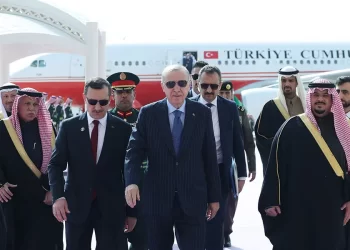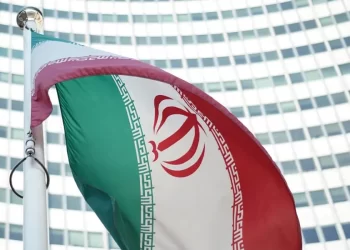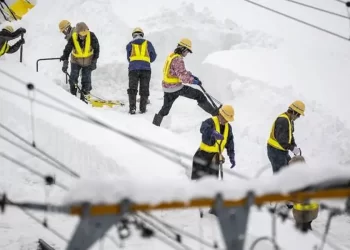UZHHOROD, Ukraine (news agencies) — This week marks the start of the school year in Ukraine, a pivotal time for any student, especially for teenagers in their final year of high school. Ukrainian teens have more than just grades and university choices on their minds — they are grappling with the realities of war.
One student, still haunted by memories of his hometown in the Luhansk region, nearly all under Russian control, struggles to adapt to life in the Kyiv area after surviving the Russian occupation. Homesickness lingers, a constant reminder of what he left behind. Two other teens agonize over choosing their future professions: They make plans for the future while navigating daily threats from Russian-guided bombs and missiles in their front-line cities.
Just before the school year started, the three found a time of peace and healing at a summer camp on the opposite side of the country. The camp for children affected by the war was created and organized by the Voices of Children charity foundation and sponsored by the Olena Zelenska Foundation, the charity set up by the wife of Ukrainian President Volodymyr Zelenskyy.
For the three teens, it was a rare chance to socialize with other young people from around Ukraine who faced war trauma and to take a much-needed break to find further strength.
What 16-year-old Oleksandr Hryshchenko liked most about the summer camp in Uzhhorod, near the western border with Slovakia, was that “there was no focus on the war.”
“You relax, talk about what’s been weighing on you during the day,” he said. His village, Vorozhba, is located at the other end of the country, less than 10 kilometers (6 miles) from the Russian border, in the northern Sumy region.
For him, the camp was a rare opportunity to escape the relentless explosions and danger, especially after the Ukrainian military advanced into Russia’s Kursk region, about 50 kilometers (30 miles) away.
“People who are farther from the border are still enjoying, celebrating the capture of new villages, but they don’t understand, don’t feel, don’t know what’s happening in the border area,” he said. “The Russians have started striking towns much more aggressively.”
Shelling has fluctuated in intensity throughout the war, but this summer has been particularly challenging. While the Russians previously relied on artillery, they now target Vorozhba with far more terrifying glide bombs, which he describes as “much worse.”
While Oleksandr had the opportunity to work with psychologists at the camp and communicate with other children there, he remains in constant contact with his family. During a recent strike, his house was shaken by blast waves from a bomb, causing a light fixture to fall from the ceiling.
His final year at his hometown school will largely be online. Many people left the village this summer, but Oleksandr said his family isn’t planning to leave just yet.
“We know that if we leave now, there might be nothing left to return to,” he said. His entire family, including his grandparents, still lives there, while his father has been serving on the front lines since the early days of Russia’s full-scale invasion in February 2022.
“For me, my father is the bravest person in my life,” Oleksandr said. The war has changed him, he said: He used to have a softer character, but now he’s more reserved.
The impact of the war is a constant worry, he said. “You think about it every night before bed. You mull over it all day, wondering what comes next.”
Despite the turmoil, Oleksandr feels he is taking control of his destiny, concentrating on his final year of school, preparing for entrance exams and choosing a university.
“I am confident that Ukraine will have a future, I will have a future, and I know that everything will be fine, but we need to get through these times,” he said.
Sixteen-year-old Valerii Soldatenko still has visions of his hometown in the Luhansk region which he fled on Aug. 29, 2022, after living under Russian occupation for about six months.
“There are moments when I almost see it before my eyes. I see familiar faces, I see those beautiful white hills,” Valerii said. His native village, Bilokurakyne, in the northern part of the Luhansk region, is occupied by Russian forces.
For him, education was a crucial factor in his decision to leave. In August 2022, just before the new school year began, he fled because the Russian curriculum had been imposed.
“I really didn’t want to conform to the Russian education system,” he said. “So it was clear that I was at the greatest risk and could put my family in the most danger.”









